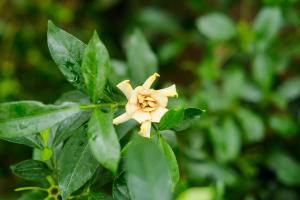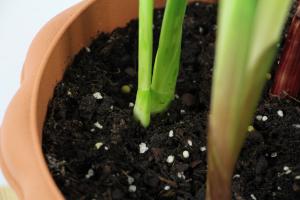Is Straw Good for Mulch for Tomato Plants?
Introduction
Tomatoes are one of the most popular vegetables to grow in home gardens, but they require a lot of care and attention to thrive. One important aspect of growing healthy tomato plants is using mulch to help conserve moisture, control weeds, and enhance soil quality. There are many types of mulch available, but straw is a popular choice among gardeners. In this article, we will explore whether or not straw is a good option for tomato plant mulch.
Benefits of Straw Mulch for Tomato Plants
Straw has several benefits when used as a mulch for tomato plants. First, it can help retain moisture in the soil, which is essential for healthy growth. Second, straw mulch can help control weeds by suppressing their growth and preventing them from competing with tomato plants for nutrients. Third, straw is an organic material that can break down over time, providing valuable nutrients to the soil. Finally, straw can help regulate soil temperature, which is especially important during hot or cold weather conditions.
Potential Drawbacks of Straw Mulch for Tomato Plants
While straw mulch has many benefits, it is not without potential drawbacks. One concern is that straw can attract pests, such as slugs and snails, which can damage tomato plants. Additionally, if straw is not properly composted before being used as mulch, it can contain weed seeds that can germinate and cause problems. Finally, straw mulch can be blown away by strong winds or wash away during heavy rainfall, leaving tomato plants exposed.
Tips for Using Straw Mulch for Tomato Plants
If you decide to use straw mulch for your tomato plants, there are several tips you should keep in mind to maximize its benefits and minimize potential problems. First, make sure the straw you use is free from weed seeds and other contaminants by purchasing it from a reputable supplier or composting it yourself. Second, apply a thick layer of straw (about 4-6 inches) around tomato plants to help retain moisture, control weeds, and provide insulation. Third, monitor your tomato plants regularly for pest problems and take appropriate action if necessary. Finally, if you live in an area with frequent high winds or heavy rainfall, consider using another type of mulch or anchoring the straw with garden staples or other methods to prevent it from blowing away or washing away.
Conclusion
Straw can be an effective and affordable option for mulching tomato plants, but it is important to weigh its benefits and drawbacks before using it in your garden. By following the tips outlined in this article, you can help ensure that your tomato plants receive the best possible care and produce a bountiful harvest.

 how many times do yo...
how many times do yo... how many planted tre...
how many planted tre... how many pine trees ...
how many pine trees ... how many pecan trees...
how many pecan trees... how many plants comp...
how many plants comp... how many plants can ...
how many plants can ... how many plants and ...
how many plants and ... how many pepper plan...
how many pepper plan...
































